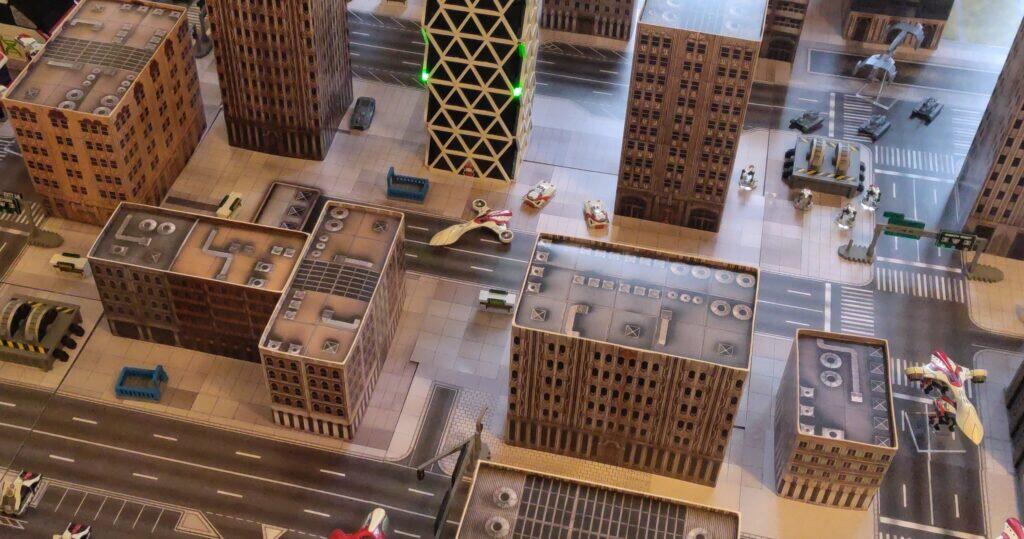

Nothing to see here.
What is the furthest one human being has ever been from every other living person? Were they lonely?
Bryan J. McCarter
It’s hard to know for sure! The most likely suspects are the six Apollo command module pilots who stayed in lunar orbit during a Moon landing: Mike Collins, Dick Gordon, Stu Roosa, Al Worden, Ken Mattingly, and Ron Evans. Each of these astronauts stayed alone in the command module while two other astronauts landed on the Moon. At the highest point in their orbit, they were about 3,585 kilometers from their fellow astronauts. You’d think astronauts would have a lock on this category, but it’s not so cut-and-dry. There are a few other candidates who come pretty close!
You’d think astronauts would have a lock on this category, but it’s not so cut-and-dry. There are a few other candidates who come pretty close!
Far from feeling lonely or abandoned, I feel very much a part of what is taking place on the lunar surface … I don’t mean to deny a feeling of solitude. It is there, reinforced by the fact that radio contact with the Earth abruptly cuts off at the instant I disappear behind the moon.
I am alone now, truly alone, and absolutely isolated from any known life. I am it. If a count were taken, the score would be three billion plus two over on the other side of the moon, and one plus God knows what on this side.Al Worden, the Apollo 15 command module pilot, even enjoyed the experience:[3] BBC Future interview with Al Wolden (April 2, 2013)
There’s a thing about being alone and there’s a thing about being lonely, and they’re two different things. I was alone but I was not lonely. My background was as a fighter pilot in the air force, then as a test pilot–and that was mostly in fighter airplanes–so I was very used to being by myself. I thoroughly enjoyed it. I didn’t have to talk to Dave and Jim any more … On the backside of the Moon, I didn’t even have to talk to Houston and that was the best part of the flight.Introverts understand; the loneliest human in history was just happy to have a few minutes of peace and quiet.

Original source
Gabe: I’ve had almost a week with my PS4 now and I thought I share some quick impressions with you guys. I’ll start with the games. Killzone Shadow Fall I really really like this game. I’m on chapter eight of the ten chapter single player campaign and I’m still really enjoying it. It’s pretty rare that I play the campaign mode of a shooter but this one is really holding my interest. Part of that is how amazing it looks I’m sure. I’ve streamed myself playing it a few times and everyone in the chat agrees it’s just a stunning game to look at. I also really like the story which is…
Original source An anonymous reader sends this quote from TechDirt: “One of the bizarre side notes to Hollywood’s big lawsuit against the cyberlocker Hotfile was a countersuit against Warner Bros. by Hotfile, for using the easy takedown tool that Hotfile had provided, to take down a variety of content that was (a) non-infringing and (b) had nothing to do with Warner Bros. at all (i.e., the company did not hold the copyright on those files). In that case, WB admitted that it filed a bunch of false takedowns, but said it was no big deal because it was all done by a computer. Of course, it then came out that at least one work was taken down by a WB employee, and that employee had done so on purpose, annoyed that JDownloader could help possible infringers download more quickly.”
Read more of this story at Slashdot.
Original source

Formation flight Sunday.
Original source
Cyclist in collision with lorry in Camberwell, London, on Monday morning, the 14th cyclist fatality in the capital in 2013![]()
Sometimes a builder makes it look as though thin air is their canvas, and bricks are their paint, and the result is a three-dimensional oil painting. This is one of those times…
Original source Jah-Wren Ryel writes “In early-2013, independent security researcher, Evan ‘treefort’ Booth, began working to answer one simple question: Can common items sold in airports after the security screening be used to build lethal weapons? As it turns out, even a marginally ‘MacGyver-esque’ attacker can breeze through terminal gift shops, restaurants, magazine stands and duty-free shops to find everything needed to wage war on an airplane.” We mentioned Evan’s work several months back; now his not-just-a-thought-experiment exploration of improvised weapons has been cleaned up and organized, so you don’t have to watch his (fascinating) talks to experience the wonders of the Chucks of Liberty (video) or the Fragguccino (video).
Read more of this story at Slashdot.